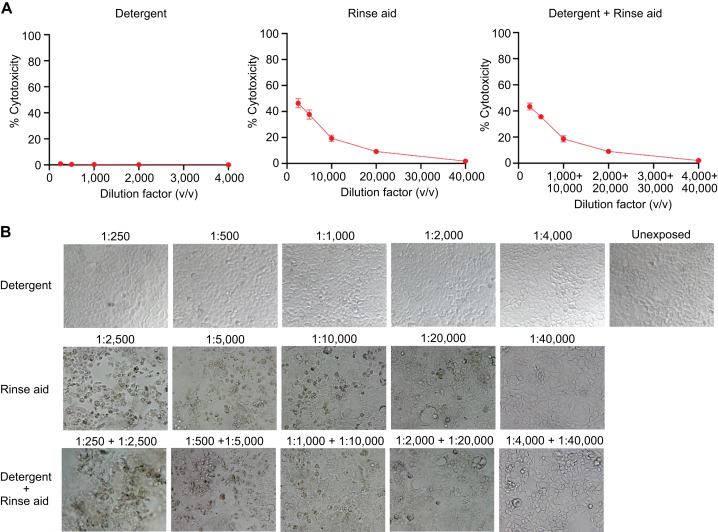The chemical residues of the rinse aids used in commercial dishwashers (those of restaurants, canteens, etc.) cause damage to the intestinal epithelial barrier. The discovery in a new Swiss study
@cokemomo/123rf
Many people have a dishwasher at home, which is convenient and practical for washing dishes, glasses, pots and pans, especially in the case of large families. But have you ever thought about the residues that detergents and rinse aids can leave on various dishes?
Precisely on these residues (actually above all those of professional dishwashers) and their possible side effects, a new study has focused, conducted by a research team from the Swiss Institute for Allergy and Asthma Research (Siaf), associated with the University of Zurich (Uzh).
The researchers analyzed the dishes after being washed and dried in a professional dishwasher (such as those used in restaurants, school canteens, barracks, etc.), discovering that the residues left on them can damage the intestinal mucosa.
As they explain in the foreword of their research, published on The Journal of Allergy and Clinical Immunology:
The increased prevalence of many chronic inflammatory diseases related to the loss of the intestinal epithelial barrier prompted us to investigate the role of extensive use of dishwasher detergents, among other factors.
Precisely for this reason they wanted to investigate the effects of dishwasher detergents (professional and domestic) and in particular of rinsing agents on cytotoxicity, barrier function, transcriptome and protein expression in gastrointestinal epithelial cells.
In particular, to be dangerous are the industrial rinse aids which almost always contain ethoxylated alcohols. It would be precisely these substances that have harmful effects on the intestine.
There is a difference between industrial and domestic rinse aids in that, for example in restaurants, the dishwashing cycle must be shorter for timing reasons.
As the University of Zurich explains:
A typical cycle in a commercial dishwasher involves circulating hot water and detergent for approximately 60 seconds at high pressure. Next, there’s a second 60-second wash and dry cycle where water and a rinse aid are applied.
As Cezmi Akdis, professor of allergy and experimental immunology at Uzh and director of SIAF who led the study, said:
What is particularly alarming is that in many appliances there is no additional wash cycle to remove residual rinse aid. This means that potentially toxic substances remain on the dishes and when they are used the next time, this dried chemical residue can easily end up in the gastrointestinal tract.
So the problem arises above all in the case of washing dishes and glasses done on an industrial level.

@The Journal of Allergy and Clinical Immunology
The study was conducted with a new methodology, one that uses human intestinal organoids and intestinal cells on microchips. In practice, the tissue forms a three-dimensional mass of cells similar to the human intestinal epithelium.
As the University of Zurich explains:
The team used various biomolecular methods to analyze the effect commercial detergents and rinse aids have on these cells. They diluted these substances to reflect the amounts that would be present on dry plates (1:10,000 to 1:40,000).
The result showed that high doses of rinsing agents were able to kill the intestinal epithelial cells and, even at lower doses, there were disadvantages, as the residues made the cells more permeable.
The study also noted the activation of several cell signaling genes and proteins that could trigger inflammatory responses.
As stated in the conclusion of the study:
The expression of genes involved in cell survival, epithelial barrier, cytokine signaling and metabolism was altered by rinse aid in the concentrations used in commercial dishwashers. The ethoxylated alcohols present in the rinse aid have been identified as the component responsible for epithelial inflammation and barrier damage.
Results that are defined as “relevant” to public health by the authors of the study:
The effect we found could mark the beginning of the destruction of the epithelial layer of the intestine and trigger the onset of many chronic diseases. It is important to educate the public about this risk, as alcohol ethoxylates appear to be commonly used in commercial dishwashers.
Follow your Telegram | Instagram | Facebook | TikTok | Youtube
Fonti: University of Zurich/ The Journal of Allergy and Clinical Immunology
Read also:
